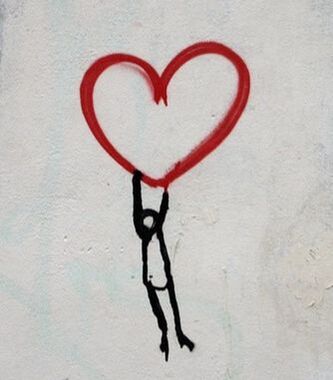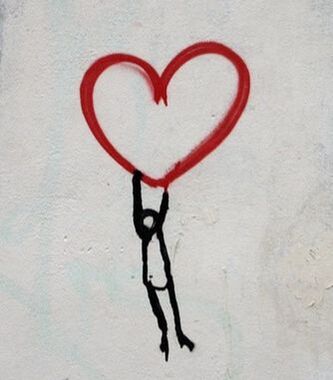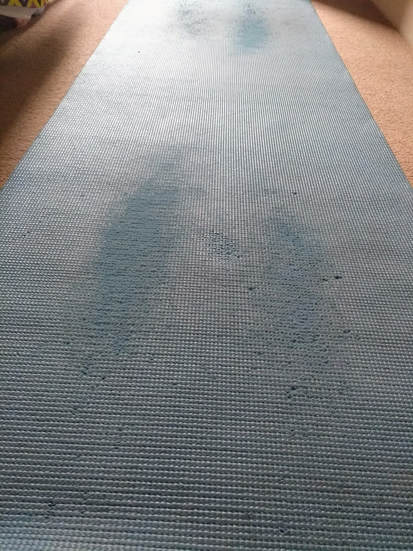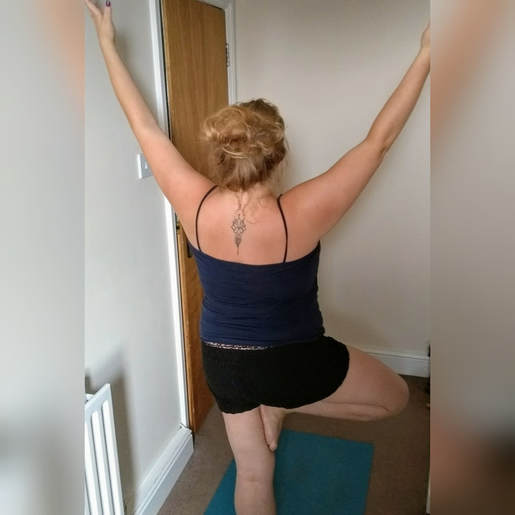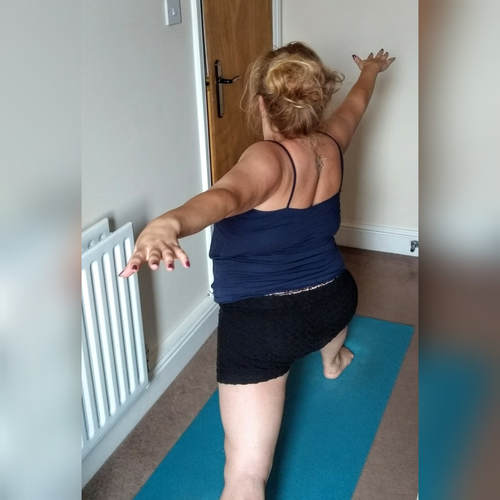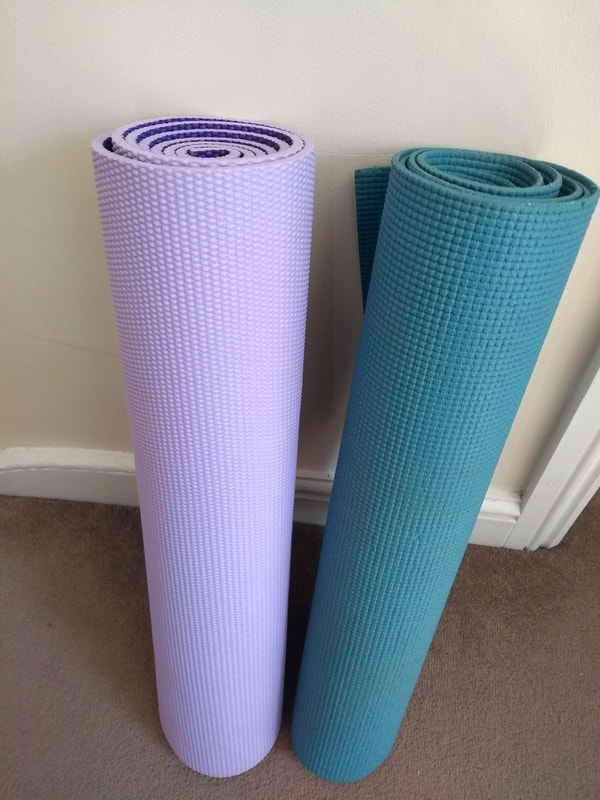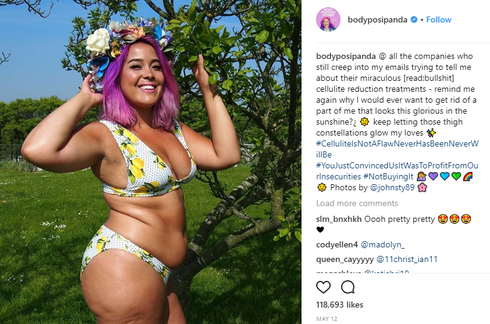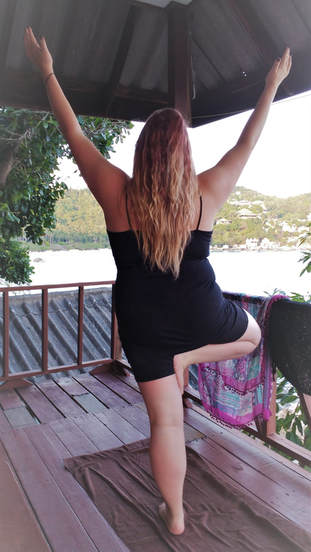|
Body image problems affect lots of different people. We live in an appearance-centred society, but it’s not just about vanity or being shallow. Body image issues aren’t something “silly” experienced by teenage girls, nor are they something we can just “get over”. Body image is partly about how we see ourselves and perceive our bodies, but this is influenced by wider issues such as societal views, diet culture, inequalities, power dynamics and discrimination. I struggled for many years, most of my life, with body image problems. For me this centred on weight but I’m aware that other people have body image issues that have nothing to do with weight or size. My work with individuals and in workshops however does sway toward weight because it is such a big factor for so many people. Weight stigma is so prevalent in our society; it can affect people of various sizes, though people at higher weights face discrimination and many more challenges in daily life. Hating our bodies, being unkind to ourselves and trying to change the way we look isn’t the solution. Punishing ourselves only makes it worse. As a counsellor and trainer with lived experience of body image problems, I am passionate about helping others understand body image on a deeper level, to enable them to challenge their perceptions, assumptions and internalised fatphobia. I personally found that learning about wider societal expectations and inequalities, as well as past experiences and trauma, can help build an understanding of why we struggle with body image. Knowing all of this can help us be more compassionate to ourselves, and others. I find that "body positivity" can be too fluffy. As much as it can be helpful for some people, it can just be yet another pressure; the pressure to “love yourself”, which is a big jump if you’ve hated your body for years. For me, it just seemed unrealistic to jiggle around in a bikini like the people I saw on Instagram when I couldn't even wear a swimming costume without a big baggy t-shirt over it for many years. "Body positivity" has unfortunately been capitalised on by companies who have noticed its popularity, and by influencers and thin (often white) attractive people online who want to promote themselves. Unfortunately, this has taken the movement away from the very people who need it the moment the most; fat, black, queer, disabled people and others who have faced discrimination and oppression. My body image approach involves taking a "big picture" view, understanding the societal and cultural issues surrounding how we see our bodies, including class, gender, disability, race, and more. Accepting our bodies can feel like a radical act in our society where capitalism needs us to be ashamed of our bodies in order to make money. Accepting living in a larger body can be incredibly difficult for people, given the weight stigma and fatphobia they may face. Self-worth is so often tied up in body image. For me, healing came from understanding experiences in childhood which impacted my confidence and self-esteem. Trauma, bad experiences, bullying and attachment difficulties can all play a part in how you view yourself and your body. Gender expectations also play a big part, and how comfortable you feel in your identity. Neurodivergence, such as autism and ADHD, can also impact how you view your body, and how your body feels. I’ve heard many people talk about not fitting in and feeling like they don’t belong, which in itself is a very difficult way to grow up and can result in anxiety and social isolation. Race, culture, disability, chronic health conditions, visible “differences” and much more affect body image. When the dominant beauty standard (here in the UK) is thin, white, young, able-bodied and “normal”, anyone outside of that can be deemed “different”. We could speculate that in fact, all those “different” people would make a majority, though this is more about power held by dominant groups in our society and the “othering” which maintains that power. If you’re struggling with body image, you don’t have to “love” your body right now, but you could start to explore what makes you feel the way you do about your body. Having counselling may help – if you’re interested in finding out more about my counselling service click here. For professionals, looking at the whole person and intersecting identities, and the context of their life, is so important to understand body image. But the starting point is looking at your own relationship with your own body, and the influences on how you see others’ bodies too. If you’re interested in finding out more about my training on disordered eating, body image and weight stigma, click here.
0 Comments
 Disclaimer: I wrote these blogs a long time ago! I'm leaving them up as I don't want to delete my journey and I think showing growth is important. But it means that some of my views, and some language I use, is now different. Please be mindful of this, and that the content might be triggering, if you choose to read on. I made a body positive video in my underwear and then freaked out. I call myself body positive, but I feel like a total fraud. I make videos and write stuff about body image and self-esteem, but I’ve just spent 20 minutes crying because of my stomach fat. This isn’t a new thing - I know my stomach is fat. It’s always been that way. I’ve never been thin so seeing my stomach in a video shouldn’t be shocking, but it still is. My video involved me having some “fun” with some “suck-it-all-in” pants. A well-known brand is Spanx, but mine were a cheap version. There was no way I was going to spend more than a fiver on potentially the most uncomfortable pair of pants I’ve ever worn. So I bought them on eBay and instantly regretted it. I told myself I didn’t have to wear them, I could just have some silly fun with them instead, which might make for a good video. I hated having pictures taken of me when I was younger, back in the day when you had to get pictures developed and you wouldn’t know what they were going to come out like. There was always a weird mix of excitement and dread when going to collect them. On seeing the photos, it was as if I was being shown the “real” me, the version that everyone else in the world sees. I always hoped I wouldn’t look as fat as I expected. I was usually disappointed. I used to justify my fatness by telling myself “I’m not that fat” and that it was okay because I was doing something about it. I was doing what was expected of me – everything I could to not be fat. Seeing a photo of myself would act as proof that I was seen as too fat by the world. Even if other people said the picture was nice, all I saw was fat. I was looking for validation in a simple photographic representation of me. But what’s more real - a small projected snapshot of your body, or how you feel in the flesh? If I’d listened to my body, I’d have found that I was relatively fit and healthy. But it was so ingrained in my mind that you couldn’t be healthy unless you were thin. That fat is repulsive. That I’d never get a boyfriend if I was fat. I was explaining this thing of seeing the “real” me to my boyfriend (proving my own theories wrong, see?) and I asked if he’d ever experienced a similar thing. I asked him if he’d ever seen a picture or a video where he didn’t recognise himself, or he looked bigger or smaller than he thought he was. He said no. Not at all. Never. I can’t imagine what it must be like to grow up in a world where you’re not scared of seeing yourself in a picture or video. Where you don’t get scrutinised, or don’t scrutinise other people for their appearance. Where you’re allowed to take up space without constantly having to try and change yourself to feel like you have a place in the world. When I made this video with the suck-it-all-in pants, I had a feeling I might not post it. I thought I’d make it anyway, push myself out of my comfort zone and all that. But it takes a huge push to post it. When I watched my video back, all I could see was a big, wobbly, obese woman who looked as if she had never exercised in her life. I know I’m not that person, I guess that’s why it’s annoying. I started to notice some of the old thoughts creep back in. “If I just stopped eating bread then my stomach might shrink” and “maybe I can just get used to the hunger”. All I saw was stomach. My automatic thought was that it was repulsive. That’s when I started feeling like a fraud. Then I go onto doubt all the thoughts I have about being “healthy”. I started to fat shame myself based on the voices of other people. But then I remind myself that my health this my own responsibility and even if I’m not being healthy, it doesn’t mean I deserve less respect, from myself or other people. When you’re not feeling healthy, that’s when you need even more self-compassion and respect to get yourself through. I’ve been working hard on having body positive thoughts for years. It’s a long process. I try to catch my negative thoughts about my body and replace them with positive ones. I’ve learnt about the diet industry, and the media and society’s expectations. I’ve started to question the things I was taught about thinness and beauty growing up. I’ve been doing yoga and connecting to how my body feels instead of how it looks. I started to have a different experience of my body. But… I’m not immune to a meltdown. It’s like I “remember” that I’m a fat person and that means I’m “bad”. Being a good, kind person is way more important than my body shape. Weight is nothing to do with acting like a decent human being, yet we’re taught that being fat is a terrible thing. We associate it with being lazy, slobbish and disgusting. The irony is, many fat people are taught they’re bad people for being fat but it’s the people telling them this that have the real problem. They’re the ones who are discriminating against people. They’re the ones who are boosting their own ego by putting someone else down. They’re the ones knowingly hurting another human being. Fat people are not the problem – people who are judgemental and discriminatory are the problem. The whole world recently flipped out about Tess Holliday on the front page of Cosmopolitan. I noticed that people tend to fall into three categories in these situations: 1. The trolls - there to be as mean as possible, to provoke some kind of reaction or just to be hateful for the sake of it. They’re the equivalent of the hard bullies at school who beat people up. 2. The “Concern Trollers” - the equivalent of the two-faced popular girls in school. They pretend they act out of kindness by “pointing out” that being fat is not healthy. It’s like they think fat people have forgotten they’re fat and need reminding. 3. The millions of people all over the world struggling with body image issues. The people in this category are the reason why Tess Holliday needed to be on the front cover of Cosmopolitan. They’re the reason I write and make videos. They’re the people who are reaching out for help and inspiration. They’re the ones who will form a new generation of body positive people. They’re the teenage girls who could have grown up to obsess over and scrutinise every part of their bodies but instead, they’ll learn that they don’t need to be thin to be respected. They’ll grow up to respect their own bodies and are more likely to be kind to them. When people aren’t distracted with negative thoughts over their bodies they can focus on more important stuff such as school, college, work, careers, travel and generally just having a bloody enjoyable life. Why be worrying about your waist size when you could be travelling the world? There are so many people like me that want to pass on the experiences we’ve had to help others, but we never stop learning and growing ourselves whilst we do that. Saying I’m body positive doesn’t make all the negativity go away. There are triggers, such as this silly video I made in my underwear. I still can’t bring myself to post it, yet I am disappointed in myself for not posting it. Body positivity is meant to relieve appearance-based pressures, but sometimes I just feel the pressure to be really good at body positivity. 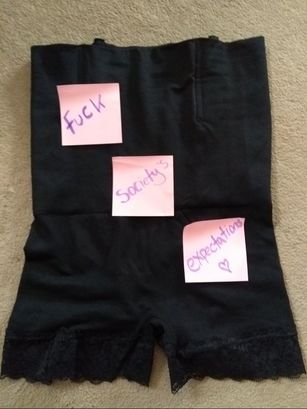 If you’re reading this in the future, then hope I finally posted the video, but please – no judgement if I didn’t. Body positivity is a long journey after all, and it’s a big jump from not wanting to be on camera at all to making a video in my underwear. I realise I’m telling you all of this more for myself than for you. This post is in fact just a massive “just post the bloody video” letter to myself. I’ve had lots of moments in my life where I’ve had to push myself out of my comfort zone - wearing a swimming costume in public, wearing a sleeveless top, wearing shorts. These were all terrifying at the time, but I just kept doing it. I kept wearing them and then it became less of a big deal. That’s literally it - desensitize yourself to yourself, as it were. In the same way that seeing more pictures of videos of myself made me more accepting. It’s just how I look, and instead of worrying about double-chins, I’m more concerned with the words coming out of my mouth. I keep pushing myself to make videos and I keep countering the negative thoughts. I’m rewiring my brain. So maybe what I need to do is make a video in my underwear single day and it’ll become so normal I’ll want to live in my underwear. No, I live in the UK - it’s way too cold for that. I realise now that body positivity is about being able to look at the picture or video and think, yes I have fat on my body but that’s not my defining feature. It doesn’t make me good or bad, it’s just a fact. What really matters is if the video means something. The content of the video is what’s important – and I think it’s vital to show people just quite how ridiculous suck-it-all-in pants are. I’m done trying to pretend my fat isn’t there. So those suck-it-all-in pants got what they deserved. Okay, okay, I’ll stop banging on about it and post the video soon. I realise now I must do this for humanity, for a better world without stupid uncomfortable pants. Disclaimer: I wrote these blogs a long time ago! I'm leaving them up as I don't want to delete my journey and I think showing growth is important. But it means that some of my views, and some language I use, is now different. Please be mindful of this, and that the content might be triggering, if you choose to read on. I just bought a new yoga mat. Sounds like a pretty average thing, but not for me. I love my old yoga mat so much, I refused to get a new one for a long time. It has been on such a journey with me – a physical and emotional journey. But it got so worn down it was as if I was just doing yoga on the floor. Bits were coming off and sticking to me. I had to accept it was time for a new mat. My body positivity path is a long, ongoing one.I struggled a lot with exercise as a kid. I had asthma which made running hard. I was always ridiculed for coming last in cross-country, even by the teachers. I had a PE teacher who spent more time checking our polo T-shirts were tucked into our gym pants - yes, actual gym pants - basically underwear. Shorts were not allowed. Girls were not allowed to wear bras. Seriously. Then he would check we were sitting up perfectly straight and if we weren’t we had to hang off the climbing frame for about 20 minutes. All the popular, happy kids were sporty people. I felt like I would never amount to anything because I wasn’t sporty, because I was fat. All of this made me scared to go to fitness classes as I got older, though I did anyway because I knew I needed to. I always knew I had to be striving to lose weight. All the women I’d known around me growing up were on diets (but the men, not so much). I thought I’d only ever be happy if I was thin. I thought I’d only ever be respected, be loved and be successful if I lost weight. I realise now that it’s all bullshit. The more I’ve learnt about body positivity and feminism, the more I’ve realised that we live in a world which profits from us hating our bodies. If we all loved ourselves, a lot of businesses wouldn’t survive. The world is full of hypocrisies. We’re sold junk food at the same time as being sold dieting products and gym memberships. It’s almost like they’re working together to keep us in the cycle of shame – selling us stuff to feed us up, then telling us we’re too fat and selling us the miraculous cure. I decided I was not going to buy into it anymore. Apart from my yoga mat! Granted, I did buy that but I don’t plan on buying another one for a really long time. I've had my old yoga mat for over six years.I bought it in India, where I attempted to throw myself into yoga. I’d dabbled in the past, learning from home. I realise now I was probably too scared to go to classes. What if I was the fattest in the class? What if I couldn’t keep up? What if everyone laughed at me? I realised the only way I would find out would be to try it. Sometimes we don’t get anywhere in life unless we push ourselves out of our comfort zones and take that leap into something scary. I went to a variety of different classes in India, but I struggled because I’d been unwell and I was very weak. It was just too hot and I felt like I wasn’t good enough. But I knew that yoga is not competition, there are no judgements and all that malarkey. So I did what I knew I had to do – I just kept going. When I got back to the UK I found a regular class in which I felt comfortable. It was a Hatha class that was beginner friendly. I still had a lot of niggling thoughts telling me that I wasn’t good enough, but I pushed on. I did that class for a couple of years until the teacher left in the class was replaced with a Vinyasa flow class. I’d always been too scared to do Vinyasa or Ashtanga because they are strong practices. Again, I was worried I wouldn’t be able to keep up. So I reminded myself… Comfort Zone. Out. Now. So I gave it a go and I’ve been doing that Vinyasa class ever since. I’ve now even started Ashtanga too and feel like I’ve conquered my fear! I’m not very good at stopping and looking at how far I’ve come. I need to keep trying to appreciate myself and keep practising as part of my body positivity and self-esteem quest. So, buying a new yoga mat and ending my journey with the old one seems like a good opportunity to stop and look at how far I’ve come. When I started doing yoga my arms would shake in downward dog. I was always stuck in my negative thoughts throughout the classes, worried that people were looking at me, judging me, which meant I wasn’t able to let go feel what was going on in my body. It may have taken years to get to the point where I don’t worry so much about what I look like, and where my arms don’t shake so much, but that’s my journey and I should be proud of it. I’ll still keep my old mat of course. But part of me is excited to use my new one! I’ll probably slip all over place on it at first until it gets nice and grubby like the old one (that’s what makes a yoga mat really great!). My old mat has followed me on such a journey, but I’m excited for the journey I'm about to go on with the new one.
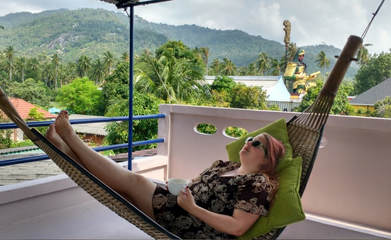 Disclaimer: I wrote these blogs a long time ago! I'm leaving them up as I don't want to delete my journey and I think showing growth is important. But it means that some of my views, and some language I use, is now different. Please be mindful of this, and that the content might be triggering, if you choose to read on. I love seeing so many happy, smiling plus size Instagrammers. Really I do. I need my regular body positivity reminders, but sometimes “loving” my body just feels like too much of a big ask. I mean, LOVE. That’s a strong word. Lots of emotion. I LOVE pizza, I LOVE chocolate buttons, and I love RuPaul’s Drag Race (the real genuine kind of love) but loving my body? I find it hard enough to say “it’s okay” on most days, or even “it’ll do”. I feel like a massive hypocrite because I make body image and self-esteem YouTube videos. I totally support loving your body. We should all love our bodies. But, and I barely want to admit this, every video I make, I cringe as I watch it back. I obsess over how funny my mouth looks when I talk, how my face looks too fat, how I gesticulate too much and how everything wobbles. But I think… No. I must not spend even a moment lingering on those thoughts. Then starts the battle in my head… “I’ve got to be body positive. If all those amazing girls on Instagram can do it then I can too.” “But I’m not them. I don’t even own a bikini.” “You don’t have to. You just have to love your body.” “Yeah, I’ll just do that.” *eyeroll* “You can do it!” “No, you’re fat and stupid!” And so on… When I was a kid I used to wear a T-shirt over my swimsuit when I was on holiday. Even taking that shirt off took years to build up to. I’m so happy for people who can take the leap into being bikini body positive so quickly, but for many of us it may take years to get to that point. We may never even get there, and that’s okay. We need to be kind to ourselves because body positivity should not have a hierarchy. It doesn’t make someone better at body positivity just because they’re wearing a bikini. Body positivity is about questioning and changing your thoughts, not necessarily changing your body. Changing the negative thoughts about your body can help you feel confident in other aspects of your life. Feeling bad about my appearance made me want to hide from people. I wanted to shrink away until I didn’t exist anymore. I was shy and timid, scared of everyone and the world. Body positivity is a journey. We can’t all love our bodies right now and we all have a different path to take. The important part is knowing that we’re on that path, or at least near the path. You might take a few steps forward and then a few steps back. You might be right at the very start just looking at the path. It’s all okay. Wherever you are, it’s okay. Because everybody’s journey is different, I can’t tell you what will work for you but I’ll share with you the main ways that helped me on my body positive path: TravellingIn my mid 20s I went to Australia. You can’t wear a t-shirt over a swimsuit in Australia – you’d look like a right dingo (I never heard a single Australian person say that, I just really wanted to use it). I needed a proper tan to prove I’d actually been away and not just hiding in my room at my parents’ house. I bought a cool tankini – a top and shorts – which I still felt uncomfortable in but I just kept wearing it until I started to get used to it. It was a big deal for me. It’s important to stop and appreciate how far we’ve come. For some people it wouldn’t be much, but for me that was a giant hurdle. Gender EqualityWhen I was younger it literally never crossed my mind why every woman I knew was on a diet yet every man wasn’t. It was just normal for me. I never remembered a time when I liked my body, it simply wasn’t allowed. Women had to be in constant dissatisfaction, always striving to change themselves, usually for the attention of men. From a very young age I knew I would have to make myself thin and beautiful if I expected to get anywhere in life. I had to lose weight if I wanted to find a man. My worth was judged on a scale held up by men. Men have a whole different set of body images expectations on them. They’re expected to be muscly and manly, whereas women are expected to be slender and petite. More recently, women are allowed to be ‘curvy’ as long as the curves are in the right places. Arse and boobs = fine. Arms, stomach, face = oh hell no. As long as it looks sexy, that’s what matters. As long as you’re still deemed attractive by men. For people who don’t want to conform to a gender, it’s even harder: trying to navigate both of these sets of gender expectations. The difficulty people have with trans and non-binary people only proves to demonstrate that gender imbalances still exist in our society – when people demand to know if someone is male or female, what they’re actually doing is figuring out how to treat them. If we truly treated people equally, it wouldn’t matter. Social MediaFollowing positive people on social media can really help. I love Instagrammers such as Body Posi Panda and plus size yogi Jessamyn Stanley. When social media first became popular I didn’t really know what to do so I just followed everyone and everything. Once I realised that I could tailor it to what I liked, I got rid of anything negative and filled my feed full of inspiring, positive stuff. Get rid of anything that doesn’t make you feel good. The unfollow and block buttons are your friends. CounsellingI was bullied a lot as a child. The things we learn as kids can take a long time to unpick. Those nasty voices from the past can stay with you all of your life. Seeing a counsellor/therapist can help you process your past and help you gain a new perspective on your life. It’s not a quick fix but it can help get to the root of problem. Cognitive behavioural therapy (CBT) can also be a good option in terms of building self-esteem as it involves challenging and changing your thoughts and behaviour. It can help you feel a lot more self-assured and confident. However, therapy can be expensive. Mental health services are underfunded and often have long waiting lists. Having worked for a counselling service for a long time, my advice would be – don’t leave it until crisis point to make the call. If you’re in the UK, go to your doctor as there may be CBT courses and counselling services available on the NHS. For a private counsellor you could look at the BACP for counsellors in your area. Yoga, Meditation and Holistic TherapiesMeditation is hard. I’ve never been good at just sitting and meditating silently, so yoga is more my thing. It helps me to focus, feel more balanced and it helps regulate my emotions. It helps quieten down the monkey mind (that battle in my head of what I should be thinking vs what I am thinking). I’ve tried all sorts of holistic therapies to help with stomach problems and anxiety issues. There are lots of different therapies out there, many of which can help with confidence and self-esteem. EFT (Emotional Freedom Technique) was particularly helpful for me. It involves tapping on different meridian (energy) points in your body which can help clear emotional blockages. A Creative OutletWriting is my outlet. It can be a great form of therapy as it’s a way to process emotions. It may involve writing in a journal or writing fiction. Writing fictional characters can sometimes be very helpful to process the way you’re feeling, even without knowing it. Creativity can be a wonderful channel, whether it’s writing, art or music. Find your creative outlet. I want to thank all those beautiful people on social media for showing off their diverse bodies of all shapes and sizes, colours and abilities. You’re an inspiration. I hope to help bridge the gap so the jump is not so big for people who want to join you guys in bikinis. For everyone else, it doesn’t matter where you are on your path. Just keep reading, learning and questioning. Learning about yourself is the best way to start accepting yourself. Question everything you’ve ever learnt. Know that you don’t have to do it alone – when you’re having a bad day, reach out for help. Trust your path and know that there are always other people there with you. We’ll get there together.
Helpful resources If you're feeling down, reach out and speak to someone now: Samaritans: 116 123 Mind info line: 0300 123 3393 NHS Moodzone - self-esteem info For UK counsellor listings - BACP My most favourite Ted Talk ever: "To this day"...for the bullied and the beautiful (by Shane Koyczan) |
Categories
All
Archives
June 2024
|
